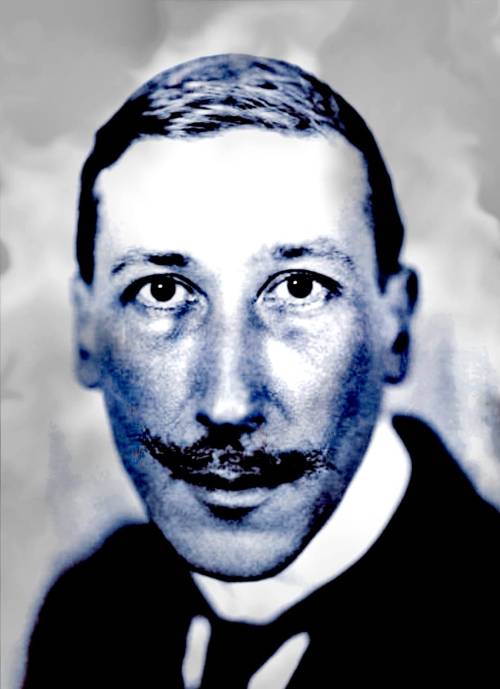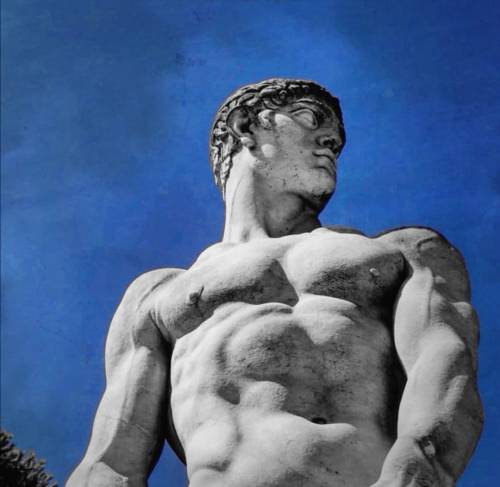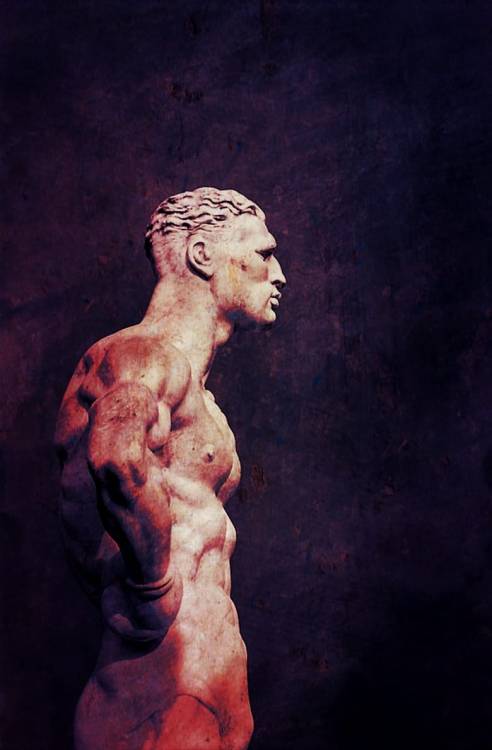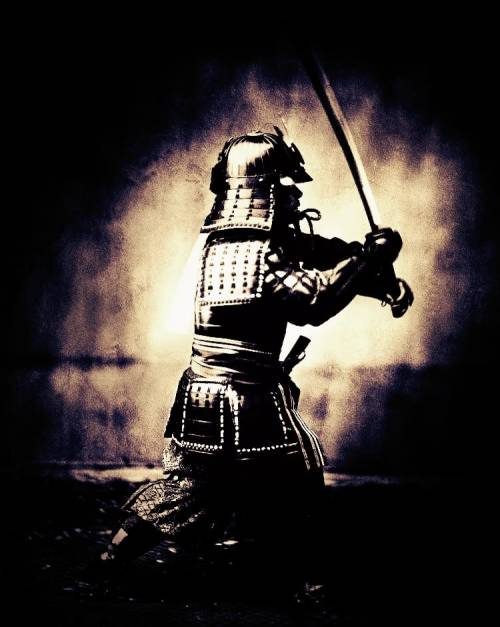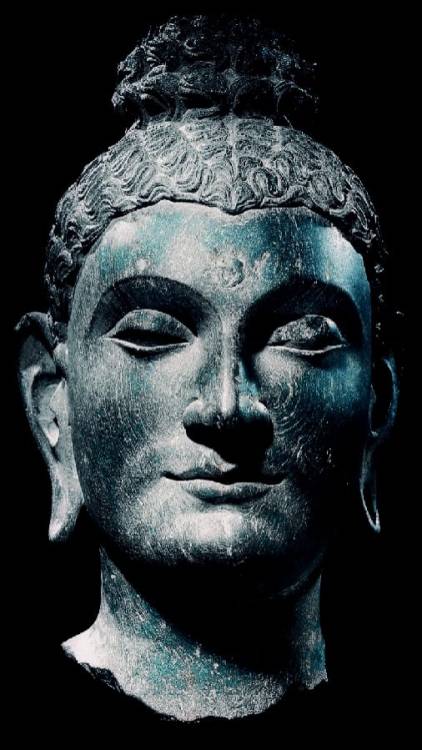#julius evola
Fascism is corporatism; public resources are used by private enterprise to advance some objective of that private enterprise. Neoliberalism and Conservatism are both fascist or corporatist economic systems. Neoliberalism is when the government proactively gives power to private enterprise and conservatism is when the government intentionally fails to regulate private enterprise
Post link
In a kind of immense field opening up in the dense and unbroken mass of the Nordic forest, against the backdrop of the metallic colors of two large lakes, under a sky made particularly lofty by this constant horizontality and straightness, which, so to speak, constitutes the style of this Pomeranian landscape, stands a group of buildings. They are a singular mixture of the primordial, the archaic, and the modern. They, too, are linear, smooth, devoid of any ornamental superfluities, at once hard and clear. Large towers, fences and large huts with colonnades, a large semi-circular amphitheater, buildings with high trapezoidal roofs, long parallellepipeds, great slopes and arenas sharply set off by their particularly violent colors — blood-red and black — against the dark green of the surrounding grass, large squares and paths cut into the lawn and paved with irregularly shaped stones like ancient Roman roads, bleachers, antennas. Over it all ripples a long, red flame, emblazoned with the swastika.
Julius Evola, originally published in Corriere Padano, August 22nd 1939, translator unknown.
Post link
Traditional civilization — Guénon affirms — has metaphysical points of reference. It is characterized by the recognition of an order higher than all that is human and contingent, and by the presence and authority of elites that draw from this transcendent plane the principles and values necessary to found a well-articulated social organization, to open the paths to higher knowledge, and finally, to give life true meaning. At the opposite pole lies modern civilization, which is defined by desacralization on a grand scale, by the systematic denial of all that is superior to man as an individual or as a collective group, by materialism, and by the impulse to realization in the sense of productive activity on a purely secular and temporal plane, an insane activism. Two books by Guénon, La crise du monde moderne [Crisis of the Modern World] and Le règne de la quantité et les signes des temps [The Reign of Quantity and the Sign of the Times], contain the essential elements of this critique. In those two works, themes already discussed by various authors of the past and the present acquire a particular sharpness and a firmer foundation.
Julius Evola translated by G. A. Malvicini
Post link
The problem of a new anti-intellectualist, ascetic and heroic aristocracy, almost feudal or barbaric in its hardness and in its refusal to attenuate its forms – an aristocracy which is not improvised, but which legitimates itself with a tradition and with a ‘race’ – is fundamental. By it alone can bourgeois civilization be overcome, not with newspaper articles, but with deeds; by it alone can we arrive at a qualitative articulation of the State beyond totalitarianism….this problem is every bit as fundamental as it is arduous to resolve. To what extent can we seek a reawakening and a reintegration of those qualities which have become latent or degenerate in the surviving nobility? To what extent will it be necessary instead to ‘begin anew’, to force ourselves to create the germs of a new nobility – one not defined by individual merits or abilities of the secular and bourgeois sort, but by a superior formation of life, which his to be jealously transmitted to a future posterity?
Julius Evola from The Meaning of Aristocracy for the Anti-Bourgeois Front.
[image: Orson Welles as Macbeth 1948]
Post link
I do not wish to dwell on my analysis of the existential problem posed by Nietzsche in any detail. After all, if Nietzsche’s definition of the problem is clear, the solutions he suggested are both hazy and dangerous — particularly in the case of his theory of the Übermensch and the will to power, and his naturalistic, almost physical praise of ‘life’. To 'be oneself’ and to follow one’s own law as an absolute law can certainly be a positive and legitimate option — or, rather, the only remaining option: but this is true only in the case of the human type I addressed in Ride the Tiger: an individual possessing two natures, one 'personal’ and one transcendent.
Julius Evola from The Path of Cinnabar
Post link
We think it possible that should the course of history, in spite of appearances, not deteriorate further, this may perhaps be due, less to the efforts and direct action of groups of men and leaders of men, than to the influences proceeding, through the paths of the spirit, from the secret realizations of a few nameless and remote ascetics, in Tibet or on Mount Athos, among the Zen, or in some Trappist or Carthusian cloister of Europe. To an awakened eye, to an eye capable of seeing with the sight of one on the Further Shore, these same realizations would appear as the only steady lights in the darkness, as the only peaks emerging, calm and sovereign, above the seas of mist down in the valleys. Every true ascetic realization becomes inevitably transformed into a support—an invisible one, but for all that nonetheless real and efficacious—for those who, on the visible plane, resist and struggle against the forces of an obscure age.
Julius Evola from the Doctrine of Awakening
Post link
Solitude should not be a burden, something that is suffered, that is borne involuntarily, or in which refuge is taken by force of circumstances, but rather, a natural, simple, and free disposition. In a text [Suttanipāta] we read: ‘Solitude is called wisdom, he who is alone will find that he is happy’.
Julius Evola from The Doctrine of Awakening.
Post link
As in a mirror, he ‘looks at himself again and again before performing an action; he looks at himself again and again before saying a word; he looks at himself again and again before harboring a thought.’ It can easily be seen that by following such a path a man naturally transforms himself into a kind of living statue made up of awareness, into a figure pervaded by composedness, decorum, and dignity …
Julius Evola from The Doctrine of Awakening: The Attainment of Self-Mastery According to the Earliest Buddhist Texts
Post link
Zen’s norm is that of absolute autonomy; no gods, no cults, no idols. To literally empty oneself of everything, including God. “If you meet Buddha on the road, kill him”, a saying goes. It is necessary to abandon everything, without leaning on anything, and then to proceed forward, with one’s essence, until the crisis point is reached. It is very difficult to say more about satori, or to compare it with various forms of initiatory mystical experience whether Eastern or Western. One is supposed to spend only the training period in Zen monasteries. Once the disciple has achieved satori, he returns to the world, choosing a way of life that fits his need. One may think of satori as a form of transcendence which is brought into immanence, as a natural state, in every form of life…..
This kind of activity is based on a sense of the individual’s irrelevance, which nevertheless does not paralyze one’s actions, but which rather confers calm and detachment. This detachment, in turn, favors an absolute and “pure” undertaking of life, which in some cases reaches extreme and distinct forms of self-sacrifice and heroism, inconceivable to the majority of Westerners (e.g. the kamikaze in WWII).
Julius Evola
Post link
Fasting, mortification, sacrifices, prayers and oblations, none of these purifies a mortal who has not conquered doubt and who has not overcome desire. Two extremes are avoided by those who detach themselves from the world: ’ the pleasure of desire, low, vulgar, unworthy of the nature of Aryia, harmful; self mortification, painful, unworthy of the nature of the Aryia, harmful. Avoiding these two extremes, the middle way has been discovered by the Accomplished One, the way which gives insight, which gives wisdom, which leads to calm, to supernormal consciousness, to illumination, to extinction.
Taken from The Doctrine of Awakening by Julius Evola
Post link
..we must not hesitate to demand that everything in modern man which gives rise to the current corruption be destroyed. But, at the same time, we must bear this in mind: we demand destruction only where we know of higher, more glorious, more living forms. We do not want negation, but restoration. There is a complete, total, positive system of values, which excels anything developed by the profane ‘civilization’ of today, which provides a safe base to go beyond all the negations characteristic of European decadence, without fear of ending up in the void.
Julius Evola from Heathen Imperialism
Post link
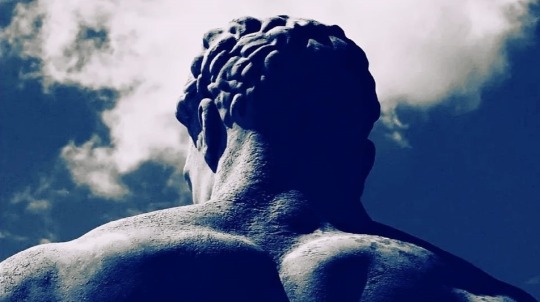
The positive superman, which suits the ‘better Nietzsche’, is instead to be identified with the human type who even in a nihilistic, devastated, absurd, godless world knows how to stand on his feet, because he is capable of giving himself a law from himself, in accordance with a new higher freedom. - Julius Evola
But so-called feminism has not been able to devise a personality for women other than by imitating the male personality, so that the woman’s “claims” conceal a fundamental lack of distrust in herself as well as her inability to be and function as a real woman and not as a man.
Julius Evola, Revolt Against the Modern World



